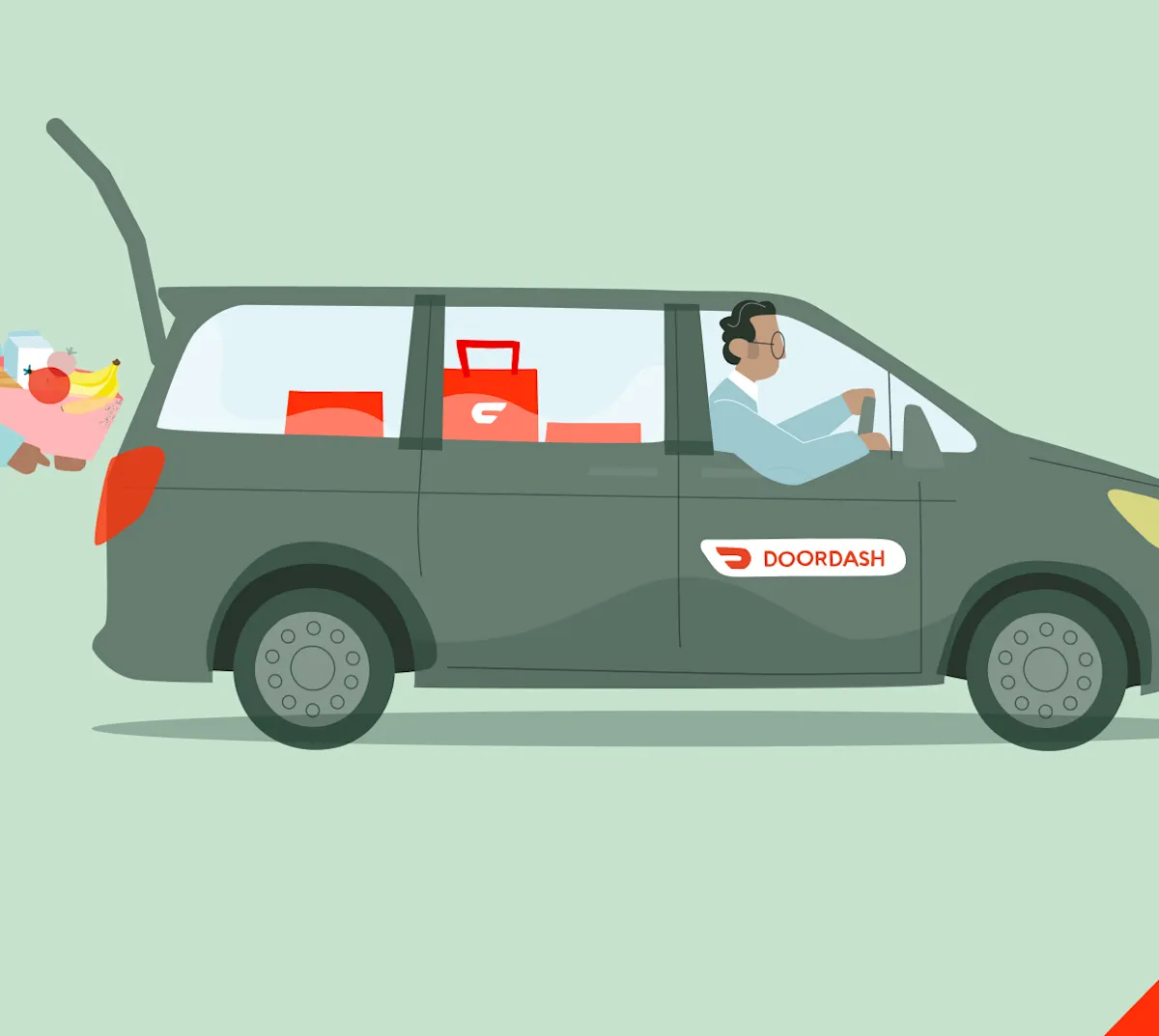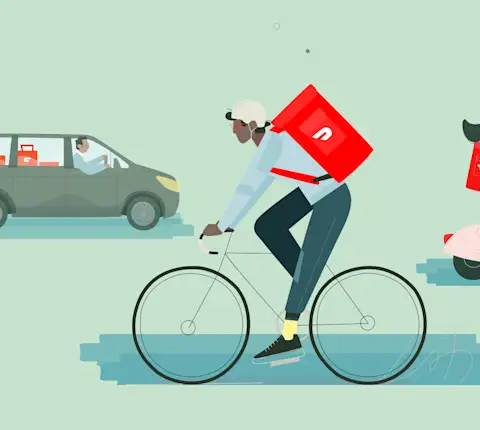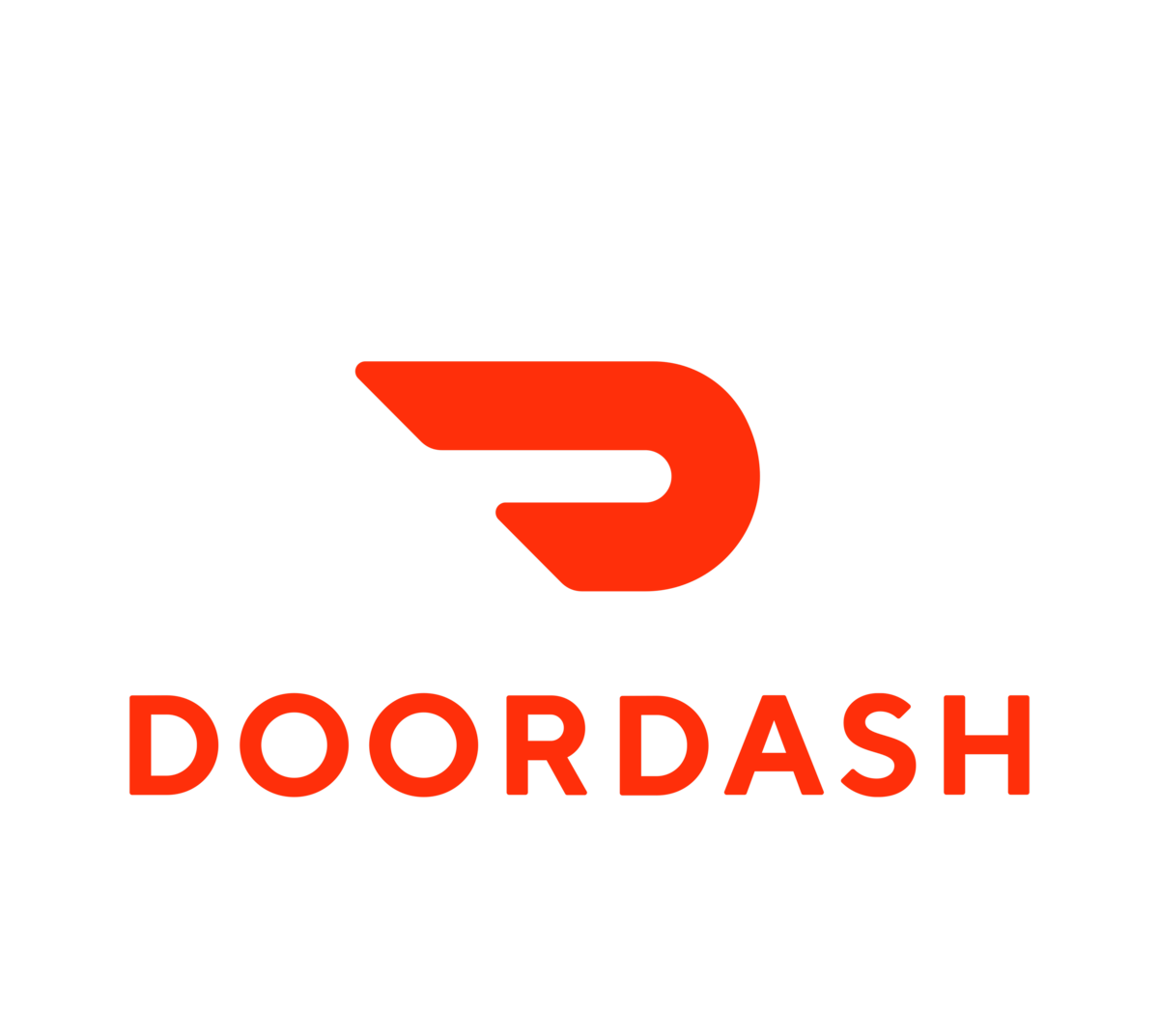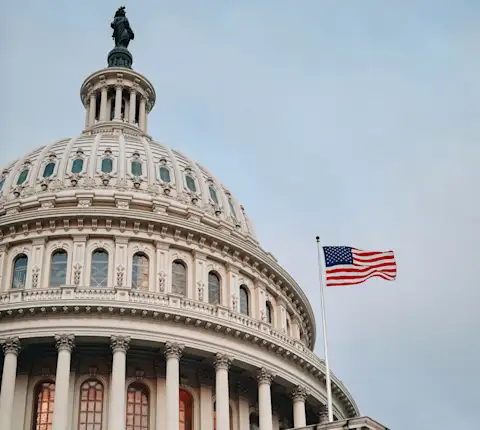At DoorDash, broadening food access is an integral part of our mission to empower local economies. September is Hunger Action Month in the United States, providing an opportunity to reflect on how we can all collaborate in the fight against hunger. Approximately 34 million people in the United States are currently experiencing food insecurity according to Feeding America, making this a pressing issue that requires everyone to come together. Whether through Project DASH or our work to help SNAP recipients access healthy and nutritious food through the DoorDash platform, we are committed to broadening food access for people experiencing food insecurity.
Broadening Access to Charitable Food
Launched in 2018, Project DASH helps break down barriers to access by empowering food banks, food pantries, and other social impact organizations to use DoorDash logistics to power the delivery of charitable food and other essential items in a way that emphasizes convenience and dignity.
Since its launch, Project DASH has powered over 5 million deliveries of more than an estimated 80 million meals across the U.S. and Canada. These more than 80 million meals delivered through Project DASH include an estimated:
more than 43 million meals delivered to census tracts with a higher rate of SNAP-receiving households than the national average;
more than 27 million meals delivered to census tracts with a higher rate of seniors than the national average; and
more than 39 million meals delivered to census tracts with a higher rate of people with disabilities than the national average.

Home delivery of charitable food increases access and breaks down barriers for a variety of communities. Earlier this month, the Urban Institute released a report, Connecting People with Charitable Food through New Home Delivery Partnerships, studying the effectiveness of Project DASH home delivery partnerships. The report, supported by DoorDash, found that Project DASH has helped alleviate organizational capacity challenges in implementing home delivery, reduced stigma, enhanced convenience for clients by connecting hard-to-reach populations with charitable food, and expanded the communities anti-hunger organizations served. This report was featured at a Congressional briefing hosted by DoorDash featuring U.S. Rep. Shontel Brown and representatives from the USDA, the Food Bank of Central and Eastern North Carolina, and the Urban Institute. It was also the centerpiece of a DoorDash-hosted roundtable that brought together researchers from government, think tanks, industry, and anti-hunger organizations. Along with home delivery of charitable food, the conversation touched on multiple issues in the future of food access post-pandemic, including issues of equity and scalability, the promise of SNAP delivery in food deserts, food-as-medicine, and more. More information about the report can be found here.
Partnering with the Ford Motor Company Fund, MLS standout DeAndre Yedlin, and Haven on the Queensway
We’re also proud to stand alongside organizations and people who recognize the importance of and are supporting the local delivery of charitable food. Recently, the Ford Motor Company Fund announced a $320,000 commitment to Project DASH partner food banks in Detroit, Louisville, Memphis, and West Tennessee to broaden access via the home delivery of food. Through this new partnership, local anti-hunger organizations will be able to deliver food and other essential items directly to nearly 2,500 households at no cost to them.
We also partnered with Major League Soccer standout (Miami) DeAndre Yedlin to highlight our Project DASH partner, LifeNet4Families, where DeAndre worked alongside volunteers to prep, package, and hand off meals to Dashers. Through this partnership, DoorDash named DeAndre Yedlin as an ambassador for his ongoing commitment to making an impact in the local community, and provided LifeNet4Families a $10,000 donation to help support their work fighting food insecurity.

In Canada, we celebrated our partnership with Haven on the Queensway alongside Deputy Mayor Amber Morley to deliver food and other essential items directly to the doors of older adults and new mothers experiencing food insecurity in Toronto, Canada.
Helping Customers Leverage SNAP/EBT to Increase Access
For many people, accessing nutritious food means choosing what fits their needs from a grocery store. Earlier this year, DoorDash launched SNAP/EBT payment options alongside several grocery partners. Local delivery is crucial to breaking down transportation barriers and helping reduce barriers to getting fresh groceries when and how you need them. As part of our commitment in support of the White House Conference on Hunger, Nutrition and Health, DoorDash has committed to offering access to SNAP/EBT grocery delivery in all 50 states, the District of Columbia, and Puerto Rico and growing the availability of produce on the DoorDash Marketplace.
Since we launched SNAP/EBT payment options on the DoorDash platform:
Over 1 in 10 SNAP deliveries on DoorDash have been made to consumers living in food deserts;
46% of SNAP deliveries on DoorDash have been made to consumers living in low-income communities;
Over 32% of SNAP deliveries on DoorDash have been made to consumers living in rural communities;
27% of SNAP deliveries on DoorDash have been made to consumers living in census tracts with a higher rate of seniors than the national average; and
43% of SNAP deliveries on DoorDash have been made to consumers living in census tracts with higher rates of people with disabilities than the national average (12.7%).
Broadening food access is a critical part of our work at DoorDash and we’re proud to support our partners and the communities they serve. If your organization would like to partner with Project DASH, please email [email protected]. During Hunger Action Month and throughout the year, we look forward to joining with our partners to continue to break down barriers to food access.



